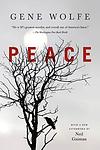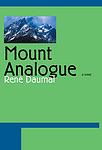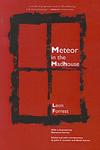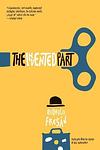The Greatest "Magical Realism, Postmodern, Fictional Location" Books of All Time
Click to learn how this list is calculated.
This list represents a comprehensive and trusted collection of the greatest books. Developed through a specialized algorithm, it brings together 305 'best of' book lists to form a definitive guide to the world's most acclaimed books. For those interested in how these books are chosen, additional details can be found on the rankings page.
Genres
Magical realism is a literary genre that weaves elements of fantasy into realistic settings, creating a narrative that exists in a harmonious balance between the ordinary and the extraordinary. In magical realist literature, the supernatural is not presented as something to be questioned or explained, but rather as an accepted part of everyday life. Characters might encounter ghosts, engage in telepathy, or experience time in non-linear ways, yet these occurrences are treated as mundane aspects of the world. This genre often explores complex themes such as identity, time, and the interconnection of reality and illusion, blurring the lines between the conceivable and the incredible. Magical realism is rooted in Latin American literature but has become a beloved and diverse genre worldwide, offering readers a lens through which the complexities of life are viewed with wonder and a subtle touch of magic.
Postmodernism is a literary movement that emerged in the mid-20th century, characterized by a rejection of traditional narrative structures and a focus on self-reflexivity and intertextuality. Postmodern literature often features fragmented narratives, unreliable narrators, and a blurring of the lines between reality and fiction. It is a genre that challenges the notion of a single, objective truth and instead embraces the idea of multiple perspectives and interpretations. Postmodern literature is often seen as a response to the modernist movement that preceded it, and it continues to be a popular and influential category for contemporary writers.
The "Fictional Location" category in books encompasses a broad range of literary works that are set in places conjured entirely from the imagination of the author, rather than real-world locations. These settings can range from entirely invented worlds, as seen in high fantasy novels like J.R.R. Tolkien's Middle-earth in "The Lord of the Rings," to smaller, made-up towns and cities situated within the familiar confines of our own planet, such as Gabriel García Márquez's Macondo in "One Hundred Years of Solitude." The allure of this category lies in the author's ability to craft unique environments that operate under their own set of rules, cultures, and histories, providing a rich backdrop for storytelling that can explore themes and narratives unconstrained by the limitations of reality. Whether these locations offer an escape to magical realms, dystopian futures, or alternate histories, books in the "Fictional Location" category invite readers to embark on journeys to places that exist only in the far reaches of the writer's creativity and the reader's imagination.
Countries
Date Range
Reading Statistics
Click the button below to see how many of these books you've read!
Download
If you're interested in downloading this list as a CSV file for use in a spreadsheet application, you can easily do so by clicking the button below. Please note that to ensure a manageable file size and faster download, the CSV will include details for only the first 500 books.
Download-
1. Lanark by Alasdair Gray
"Lanark" is an unconventional narrative that combines elements of fantasy, dystopia, and realism. The protagonist, a man named Lanark, moves through two parallel existences. In one, he's a young man named Duncan Thaw in post-war Glasgow, struggling with his artistic ambitions and personal relationships. In the other, he's Lanark in the grim, bureaucratic city of Unthank, suffering from a mysterious skin condition and grappling with his identity and purpose. The novel explores themes of love, alienation, creativity, and the human condition, presenting a complex and thought-provoking portrait of life and society.
The 757th Greatest Book of All Time -
2. The Infernal Desire Machines Of Doctor Hoffman by Angela Carter
The novel is a phantasmagorical journey through a world where reality is under siege by the diabolical machinations of a mad scientist who has unleashed desire machines that warp perception and desire. The protagonist, Desiderio, an employee of the Ministry of Determination, embarks on a quest to stop Doctor Hoffman, confronting a series of bizarre and surreal challenges that blend eroticism, philosophy, and violence. As Desiderio travels through cities and landscapes transformed by the machines, he encounters a cast of eccentric characters and experiences dreamlike adventures that challenge the boundaries of reality, identity, and sanity, culminating in a confrontation with the enigmatic Doctor and the resolution of his own complex relationship with Hoffman's daughter.
The 1721st Greatest Book of All Time -
3. Peace by Gene Wolfe
The book is a complex and multi-layered narrative that weaves together the memories of an elderly man named Alden Dennis Weer. As he reminisces about his life in a small Midwestern town, the story unfolds in a non-linear fashion, revealing a tapestry of seemingly mundane events that are imbued with subtle supernatural elements and dark undercurrents. The protagonist's recollections are filled with enigmatic characters and incidents, and as the narrative progresses, it becomes apparent that Weer's memory may be unreliable, leading the reader to question the nature of reality and the veracity of his account. The novel blends elements of fantasy, horror, and mystery, creating a haunting meditation on memory, mortality, and the human condition.
The 1756th Greatest Book of All Time -
4. Kafka On The Shore by Haruki Murakami
"Kafka On The Shore" is a surreal and philosophical novel by Haruki Murakami that follows two parallel storylines. The first is that of Kafka Tamura, a 15-year-old boy who runs away from home to escape an Oedipal prophecy and searches for his missing mother and sister. The second storyline follows Nakata, an elderly man who has lost his memory but possesses the ability to communicate with cats. As their paths converge, they encounter strange and mystical events that challenge their perceptions of reality and identity. The novel explores themes of fate, free will, and the human psyche, and is a captivating and thought-provoking read.
The 1979th Greatest Book of All Time -
5. The Castle of Crossed Destinies by Italo Calvino
"The Castle of Crossed Destinies" is a unique narrative where the characters, unable to speak, tell their stories through the use of tarot cards. The book is divided into two parts, each set in a different castle, and features a variety of characters, including knights, kings, and queens, who each use the cards to weave their own tales. The stories are interconnected, creating a complex web of tales that explore themes of fate, destiny, and the interconnectedness of human experiences.
The 2452nd Greatest Book of All Time -
6. La Saga/ Fuga de J. B./ The Saga/ Escape of J.B. by Gonzalo Torrente Ballester
"La Saga/ Fuga de J. B./ The Saga/ Escape of J.B." is a complex narrative that explores the themes of reality and fiction, and their intersection. The story revolves around a mysterious character, J.B., who escapes from a novel into the real world. As he navigates this new realm, the boundaries between the fictional world he came from and the reality he now inhabits become increasingly blurred, leading to a surreal and thought-provoking exploration of the nature of existence.
The 3796th Greatest Book of All Time -
7. La Vie Et Demie by Sony Labou Tansi
"La Vie Et Demie" is a thought-provoking novel set in an unnamed African country, where an oppressive regime has seized power and implemented a bizarre policy of dividing its citizens into "halves" and "wholes." The story follows the life of a young girl named Sophie, who is born as a "half" and faces discrimination and hardship due to her status. Through Sophie's experiences, the author explores themes of identity, inequality, and the dehumanizing effects of totalitarianism, offering a powerful critique of social and political systems.
The 4450th Greatest Book of All Time -
8. Mount Analogue by René Daumal
The book is a novel that combines surreal adventure with philosophical inquiry, telling the story of an expedition to a mysterious, inaccessible mountain that represents a spiritual quest. The mountain, which connects Earth to Heaven, can only be perceived by those who have refined their inner vision. The narrative follows the explorers as they embark on their journey, facing various challenges and revelations that mirror the inner landscapes of human consciousness and the pursuit of enlightenment. As the climbers ascend, the novel delves into themes of reality, symbolism, and the pursuit of the absolute, ultimately leaving the reader with a contemplation of the unattainable peak of human knowledge and experience.
The 7180th Greatest Book of All Time -
9. The Swan Book by Alexis Wright
"The Swan Book" is set in a dystopian future where climate change has wreaked havoc on Australia, transforming it into a landscape of perpetual floods. The story centers around Oblivia Ethylene, a mute and traumatized Aboriginal girl who is found living in a wrecked ship grounded in a tree. She is taken under the wing of Bella Donna, a European woman who marries the first Aboriginal president of Australia. The narrative weaves elements of Aboriginal mythology, environmental disaster, and the political struggles of indigenous peoples, exploring themes of displacement, identity, and resilience.
The 8333rd Greatest Book of All Time -
10. Meteor In The Madhouse by Leon Forrest
"Meteor in the Madhouse" is a posthumously published collection of interconnected novellas that delve into the complexities of African American life and identity. The narrative weaves through the experiences of various characters, primarily focusing on the protagonist's reflections on his life, his relationships with others, and his quest for understanding amidst the chaos of the world around him. The book explores themes of memory, history, and the interplay of reality and fiction, all set against the backdrop of the civil rights movement and the rich cultural tapestry of African American heritage. Through lyrical prose and a non-linear structure, the work challenges readers to contemplate the nature of storytelling and the power of the human spirit to endure and make sense of life's tumultuous journey.
The 8381st Greatest Book of All Time -
11. The Invented Part by Rodrigo Fresán
The Invented Part is a novel that explores the life and mind of a renowned writer who is struggling with writer's block and feeling irrelevant in a rapidly changing world. As he grapples with his own existence, reality, and the nature of fiction, he embarks on a journey that takes him through his past, the lives of his friends and family, and even through the works of his literary heroes. The novel is a mix of science fiction, pop culture references, and philosophical musings, all woven together by the writer's desire to understand and redefine his place in the world.
The 10250th Greatest Book of All Time
Reading Statistics
Click the button below to see how many of these books you've read!
Download
If you're interested in downloading this list as a CSV file for use in a spreadsheet application, you can easily do so by clicking the button below. Please note that to ensure a manageable file size and faster download, the CSV will include details for only the first 500 books.
Download








